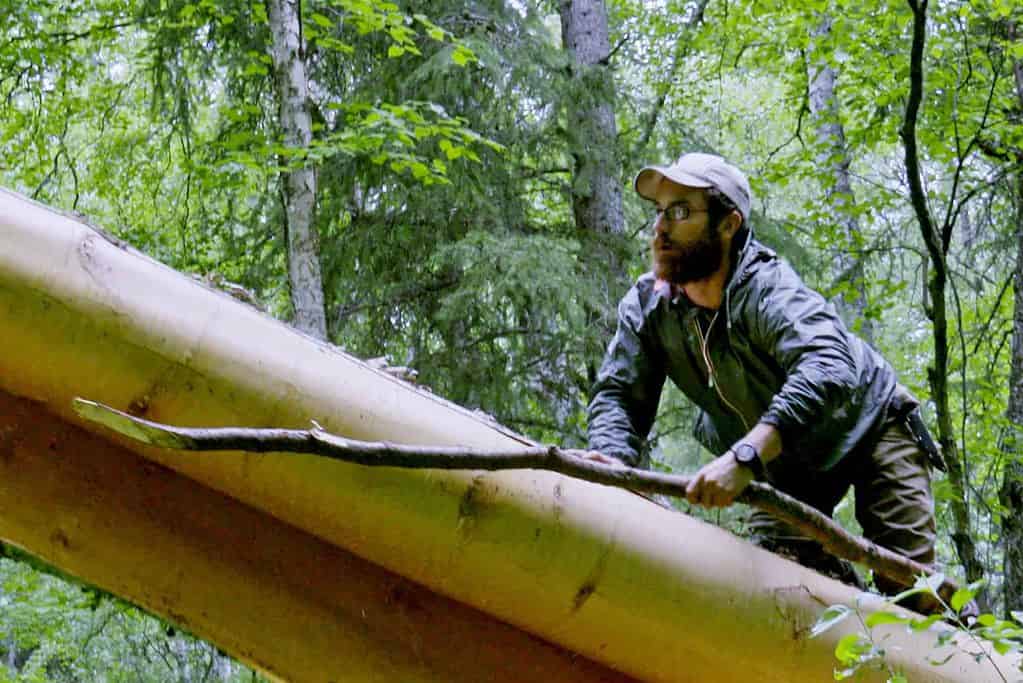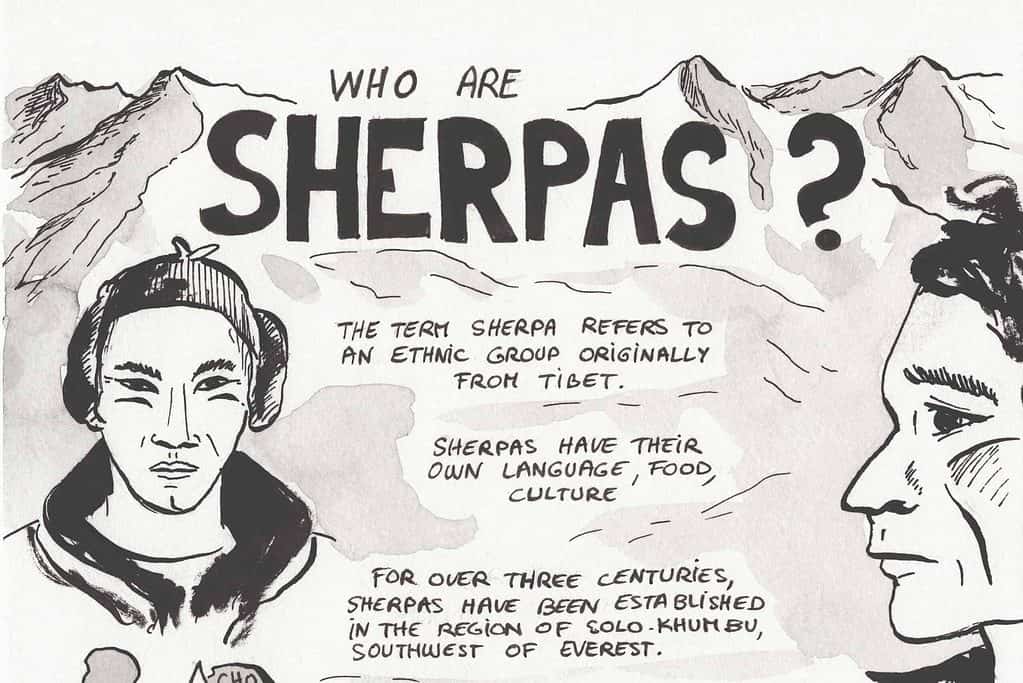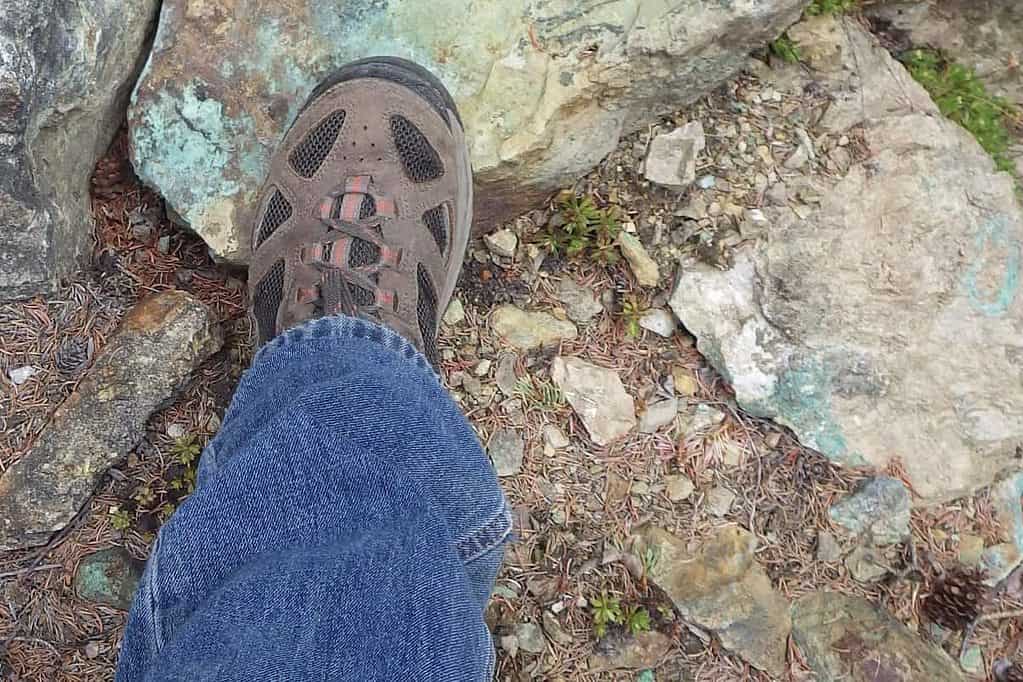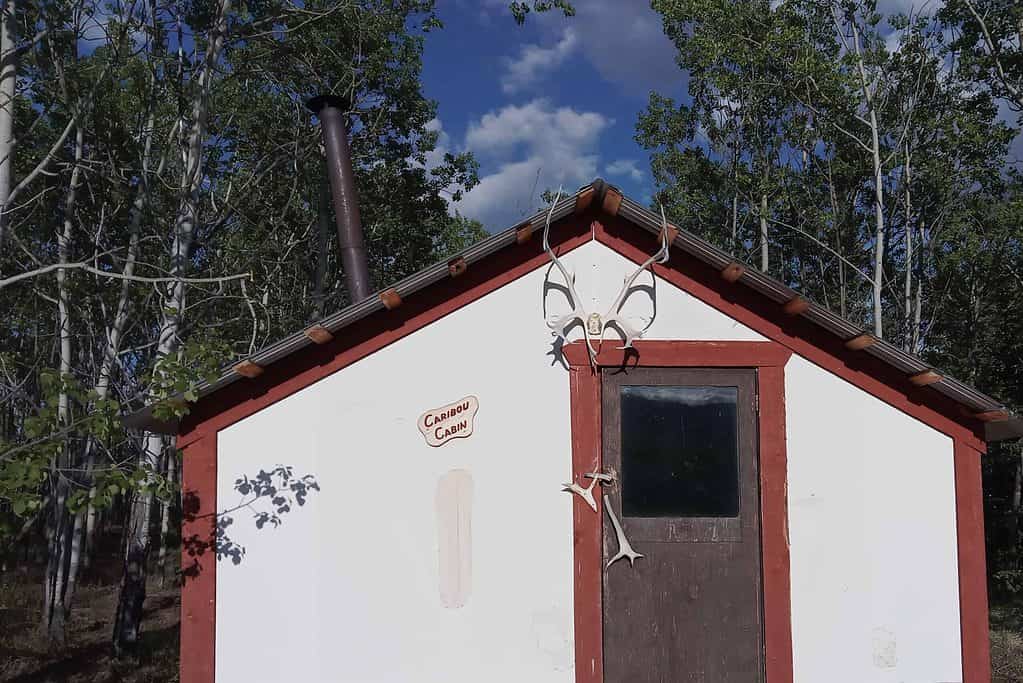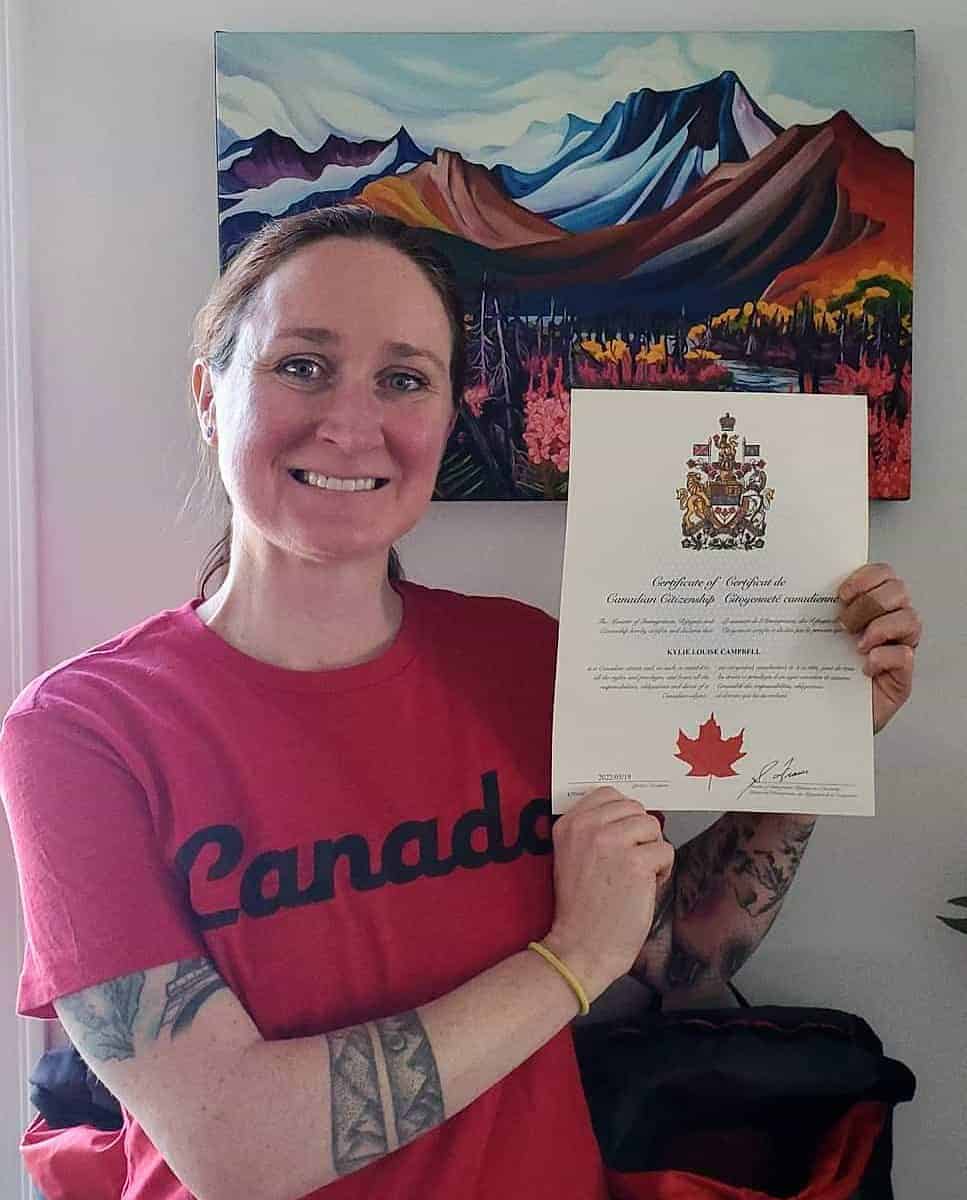
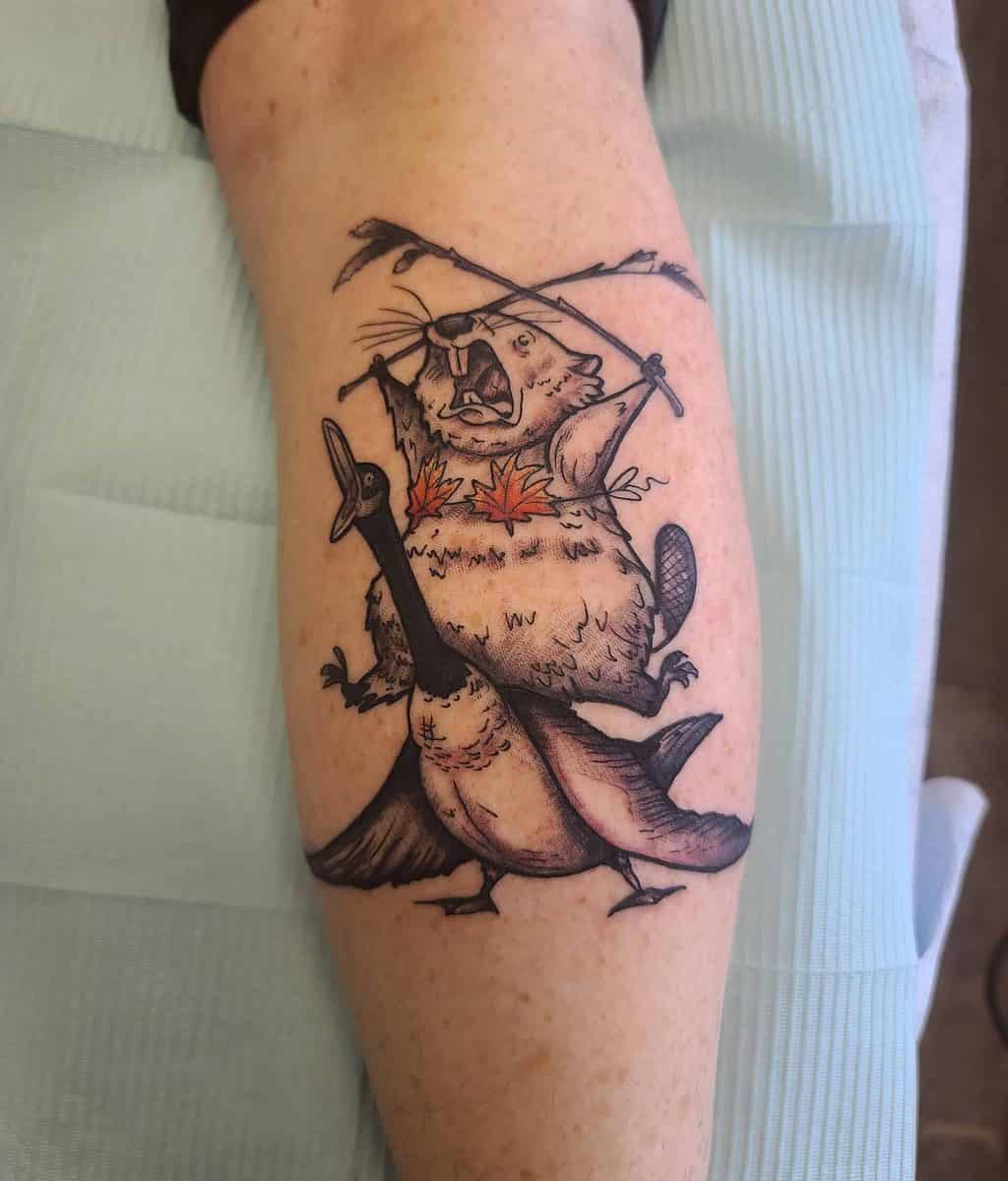

I wasn’t expecting the day I became a Canadian citizen to be so emotional. Particularly because it was on Zoom. But two weeks before my ceremony, I got an email, out of the blue, informing me I was going to be a Canadian.
On May 19, 2022, at 11 a.m. I signed into Zoom. (They register you and pop you into a “room” with all of the other soon-to-be Canadians.) I sat there looking at all of the other people. I thought about where they were from, how they came to be in Canada and how long they had waited to be Canadian.
It’s been five years, seven months and 23 days since I landed in Kelowna, B.C., and it has taken that amount of time to become a Canadian citizen.
Don’t get me wrong … when I first arrived, I was pretty sure I was going to leave. Sure, Canadians were nice. It was a beautiful country. But damn was it expensive! After leaving poorer countries, where I spent years making well below the Canadian minimum hourly wage in a day, I was pretty broke. But I made the crazy decision to move even farther north with my Dodge Grand Caravan (“L’il B—-”) and with $1,000 to my name.
But, in these past few years of living in the Yukon, my life has changed drastically: I bought a property, got married, got dogs and basically became a totally different person.
But now that I’m a Canadian citizen, does that mean I’m not Australian or a New Zealander anymore?
The ceremony continued and I started to see all of the different colours of skin, seeing all of the different families and different clothing—from hijabs to formal suits, to red-flannel shirts. And tears started to well up in my eyes. It’s strange the feelings that overwhelmed me at that moment. How different we all were; and in a few moments, we were going to be something else—something different.
People ask me random Australian questions all the time. Also, they tell me about something Canadians do and then ask “Is it like that in Australia?” I honestly can’t remember. The last time I was in Australia was 2011, and I’m sure it’s changed a lot there since I’ve been gone. My parents sold our family home and I’ve never met my nieces or nephew in person. New buildings/infrastructures have decimated the Gold Coast skyline … It’s not really home. Nor was it ever. I left when I was 18, from the searing heat and endless sun, to the Northern Hemisphere.
So, even though I have a passport, does it mean I’m Australian? I’m not a fan of the ocean; I’d rather ski than surf. My freckled skin is also not attuned to the Australian climate. I never had to attest to anyone that I wanted to be Australian; I was just born there and got all of the benefits of that country.
I also received New Zealand citizenship through ancestry (my mother was born in NZ). Technically, I will be a tri-citizen, where I’m a citizen of three countries and (will) hold three passports. I feel pretty lucky, to be honest. But becoming Canadian, I actually have to swear an oath to the Queen.
At the ceremony, Judge Hart thanked us and reminded us of what it means to be Canadian. She told us all that there are 76 people representing 22 different countries who are becoming Canadian today. I’m no longer the only one with tears in their eyes. This overwhelming feeling of belonging … feeling like you can “hold your place” in what was once a foreign place. I’m lucky I speak one of the languages, so I can only imagine how difficult it is for those who don’t. How foreign Canada must be. But many had the Canadian flag behind them—with them. It’s hard not to feel patriotic at that moment. All of the paperwork, all the time involved; the money and the stress. We said the oath in both English and French, and we were all officially Canadian.
It’s kind of strange, now, when people ask me “what” I am. Do I say Canadian? With my funny Aussie accent, would anyone ever believe me? It’s strange; I still feel rather foreign and maybe I always will be.
Does being Canadian mean being able to survive the dark, cold winters? Is it knowing what a really good poutine is? Is it knowing the words to “O Canada”? Or is it just making fun of every other province or territory?
Maybe I won’t find out, for some years, what being Canadian entails. Maybe once my accent fades and I’ve lived here longer than where I was born and raised, I’ll know what being Canadian means.
I asked some other Canadian citizens who were not born in the Great White North, what being Canadian means to them ….
“Having an opportunity to live and contribute to Canada. It is an invitation to share its values. For me, it’s being a member of a country, even when I was not born here—where I can express myself freely. The language I speak to my friends, neighbours and co-workers is no longer a foreign language. It is my language. The country where we moved to is no longer a foreign country. It is my country too. Apart from opportunities, I see the responsibilities as well. Living in the second-largest country on this planet makes us responsible to take care of its nature and environment.”
– Josef Tulach, citizen since 2021 (originally from Czechia)
“I have been in Canada for a little over six years and almost five and a half of it in Yukon. Being a Yukoner is about being unique and brave, and [about] access to the nature, like nowhere else I have lived. Love how welcoming the community of people here are, and feel that’s the reason Yukon is so diverse, for a such a small place. Becoming a Canadian is committing to returning those feelings back to the community and hope others feel the same [that] I did/do. Also, after becoming a Canadian, I have this new-found confidence when I cross borders to other countries: I’m asked fewer questions, [I have] fewer visas and I can roam the world with fewer suspicious eyes. I’m grateful to Canada for giving me that feeling.”
– Raghava Simha, citizen since 2021 (originally from India)
“I have lived in different countries but never felt the need to take up a new nationality, but Canada was our country of choice for a family immigration, and it felt like home. The values I grew up with and I find important, I find them here. Canada has a lot of spec[ial] space (my home country has 17-million people in 41,000 square kilometres) and opportunities, if you work for it.
– Mirjam Vallier-Wind, citizen since 2016 (originally from the Netherlands)
“Multicultural altruism and freedom in the great outdoors.”
– Mikey P. Jones, citizen since 2018 (originally from the UK)
What does being Canadian mean to you?

